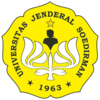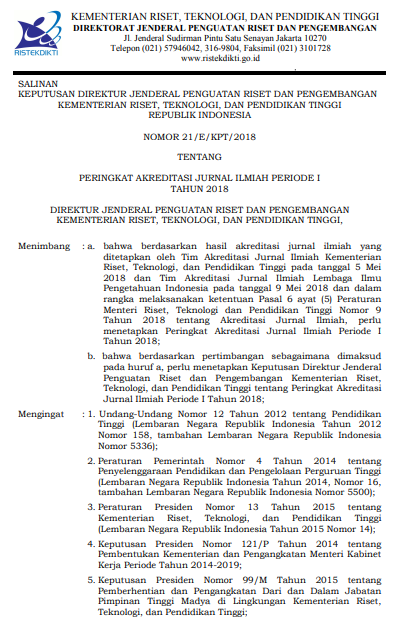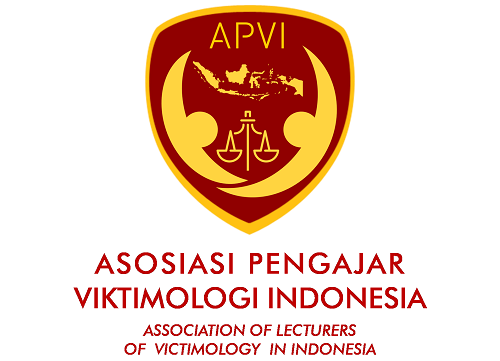Examining the Legal Impact of Presidential Threshold Implementation in the 2024 Presidential Election
Abstract
Presidential threshold is the threshold of vote acquisition that must be obtained by political parties in an election to be able to nominate a presidential candidate. General elections for president and vice president are submitted by political parties or a combination of political parties that have at least 20% of the seats in the DPR or 25% of the national valid votes in legislative elections. The type of research used is library research. The approach used is a normative approach. The data collection technique is through literature study. And analyzed by qualitative data analysis method. The presidential threshold setting as determined by the Constitutional Court through decision Number 53/PUU-XV/2017 states Article 222 of Law Number 7 of 2017 concerning Elections which regulates the Presidential threshold requirements have an impact on political parties, due to restrictions on the constitutional rights of political parties that has a small number of seats in the DPR. Then the high threshold number will cause only political parties to nominate their president and vice president so that the implementation of the Presidential threshold is more likely to benefit the authorities and harm the people and negate the people's right to be able to choose alternative figures in the 2024 Presidential Election.
Keywords: Presidential Threshold, Presidential Election, 2024 Presidential Election, President.
Full Text:
PDF View
References
Akuntono, I. (27. Mei 2014). Lima Ketua Umum Partai Penuh Canda Dukung Jokowi-JK. Hentet 15 . Januari 2022 fra Kompas.com: https://nasional.kompas.com/read/2014/05/27/1539161/Lima.Ketua.Umum.Partai.Penuh.Canda.Dukung.Jokowi-JK
Ansori, L. (Juni 2017). Telaah Terhadap Presidential threshold Dalam Pemilu Serentak 2019. Jurnal Yuridis, Volume 4, hlm. 19. doi:http://dx.doi.org/10.35586/.v4i1.124
Antameng, I. V. (2019). Implikasi Presidential threshold Terhadap Pemilu Menurut Undang-Undang Nomor 7 tahun 2017. Jurnal Lex Administratum, Volume 7, hlm. 43.
Asep Wijaya, R. P. (Juni 2020). Problematika Hukum Penerapan Presidential threshold Dalam Pemilihan Umum di Indonesia. Jurnal Risalah Hukum, Volume 16, hlm. 53. doi:https://doi.org/10.30872/risalah.v16i1.316
Asyikin, A. d. (2010). Pengantar Metode Penelitian Hukum. Jakarta: Rajawali Pers.
Beritagar, R. (12. Januari 2018). Ambang Batas Pencalonan Presiden dan Tantangan Parpol. Hentet 14. Januari 2022 fra Beritagar.id: https://beritagar.id/artikel/editorial/ambang-batas-pencalonan-presiden-dan-tantangan-parpol
Diniyanto, A. (Oktober 2018). Mengukur Dampak Penerapan Presidential threshold di Pemilu Serentak Tahun 2019. State Law Review, Volume 1
Fadjar, A. M. (April 2009). Pemilu Yang Demokratis dan Berkualitas: Penyelesaian Hukum Pelanggaran Pemilu dan PHPU. Jurnal Konstitusi, Volume 6, hlm. 4.
Ghafur, J. (24. Januari 2017). Presidential Threshold. Hentet 14. Januari 2022 fra Fakultas Hukum Universitas Islam Indonesia: https://law.uii.ac.id/blog/2017/01/24/presidential-threshold/
Haris, S. (2014). Praktik Parlementer Demokrasi Presidensial di Indonesia. Jakarta: Pradnya Paramita.
Ibrahim, J. (2006). Teori dan Metodelogi Penelitian Hukim Normatif. Malang: Banyumedia Publishing.
Ihsanuddin. (10. Agustus 2018). Tak Diajak Jokowi dan Prabowo, PBB Netral di Pilpres 2019. Hentet 14. Januari 2022 fra Kompas.com: https://nasional.kompas.com/read/2018/08/10/16451231/tak-diajak-jokowi-dan-prabowo-pbb-netral-di-pilpres-2019
Luzuardi, G. (24. Mei 2018). Parpol Baru Belum Dapat Mengusung Capres, Ini Konsekuensinya. Hentet 4. Desember 2021 fra Tribunnews.com: https://www.tribunnews.com/nasional/2018/05/24/parpol-baru-belum-dapat-mengusung-capres-ini-konsekuensinya
Mamudji, S. S. (2009). Penelitian Hukum Normatif. Jakarta: PT. Raja Grafindo Persada.
Paat, Y. (25. Mei 2018). KPU: Parpol Baru Tidak Boleh Usulkan Capres dan Cawapres. Hentet 4. Desember 2021 fra Berisatu: https://www.beritasatu.com/politik/493960/kpu-parpol-baru-tidak-boleh-usulkan-capres-dan-cawapres
Sardini, N. H. (2011). Restorasi Penyelenggaraan Pemilu di Indonesia. Yogyakarta: Fajar Media Press.
Soekanto, S. d. (2009). Penelitian Hukum Normatif. Jakarta: PT. Raja Grafindo Persada.
Triyoga, H. (14. Juli 2018). Dicap Rusak Demokrasi, Ambang Batas Capres Dinilai Harus Dibatalkan MK. Hentet 4. Desember 2021 fra viva.co.id: https://www.viva.co.id/berita/nasional/1053995-dicap-rusak-demokrasi-ambang-batas-capres-dinilai-harus-dibatalkan-mk
DOI: http://dx.doi.org/10.20884/1.jdh.2022.22.2.3429
Refbacks
- There are currently no refbacks.
JURNAL DINAMIKA HUKUM Indexed by :
 | Jurnal Dinamika Hukum | |
| Faculty of Law, Universitas Jenderal Soedirman | Copyright of Jurnal Dinamika Hukum | |
| Yustisia IV Building, Law Journal Center | ISSN 2407-6562 (Online) ISSN 1410-0797 (Print) | |
| Purwokerto, Central Java, Indonesia, 53122 | JDH is licensed under a Creative Commons Attribution 4.0 International License | |






